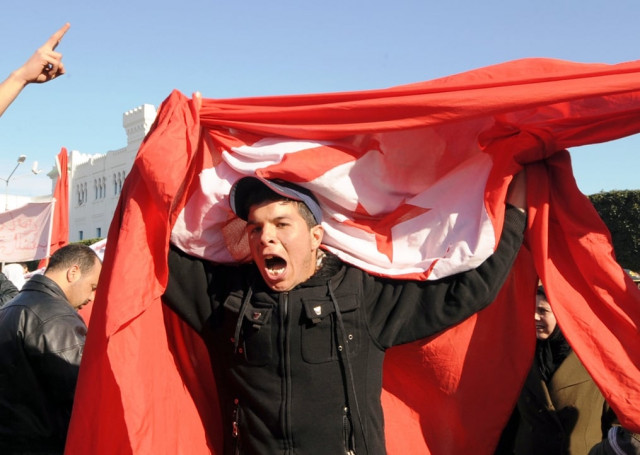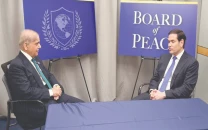Protesters demanding jobs clash with police in Tunisian town
Gafsa recruitment results cause mass outrage among unemployed Tunisians

Gafsa recruitment results cause mass outrage among unemployed Tunisians
PHOTO: AFP/FILE
The protesters closed roads and burned tires to demand jobs after the state-owned phosphate company Gafsa-CPG released the results of a recruitment campaign.
Tunisian schoolgirls rebel against having to wear uniform
“Police are pursuing protesters and firing gas bombs, as youths closed the streets in Metlaoui,” Issam Chahbani, a resident, told Reuters.
“There is feeling of injustice and marginalisation here ... We’re only asking for jobs and development.”
In Mdihla town in the same region, protesters clashed with police to press for jobs in CPG, witnesses told Reuters.
Violent protests erupted this month in several towns and cities across Tunisia following tax and price hikes imposed on Jan. 1 by a government seeking to reduce a budget deficit to meet an agreement with its international donors. One demonstrator was killed during the protests.
The unrest subsided last week after the government responded by pledging extra aid for poor families and those in need.
Tunisian unemployment is running at 15.6 per cent, rising to about 30 per cent among the young.
Once one of the world’s largest producers of phosphates, Tunisia saw its market share fall after a 2011 uprising against then president Zine El-Abidine Ben Ali. Since then protests and strikes have steadily cut into production and caused billions of dollars in losses. The CPG is the biggest employer in Gafsa, one of Tunisia’s poorest areas.
200 arrested, dozens hurt in fresh Tunisia unrest
Tunisia has been hailed as the only democratic success of the Arab Spring: the one Arab country to topple a long-serving leader in that year’s uprisings without triggering widespread violence or civil war.
But Tunisia has had nine governments since Ben Ali’s overthrow, none of which have been able to resolve deep-rooted economic problems. The economy has worsened since the vital tourism sector was nearly wiped out by a wave of deadly militant attacks in 2015, and has yet to recover despite improved security.



















COMMENTS
Comments are moderated and generally will be posted if they are on-topic and not abusive.
For more information, please see our Comments FAQ